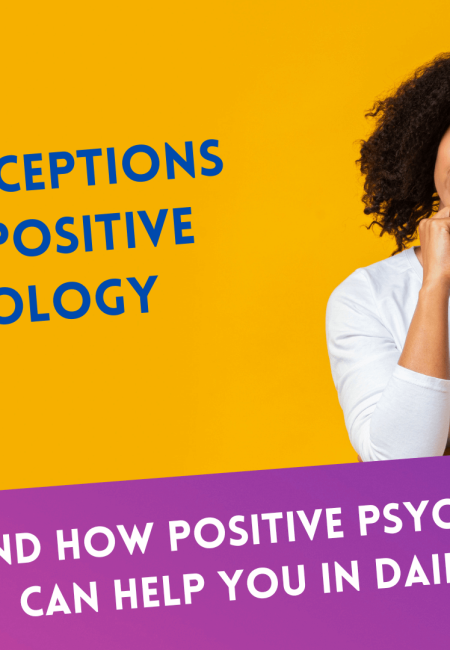What is Positive Psychology?
The field was popularized by psychologist Martin Seligman in the late 1990s, who emphasized that people don’t just want to go from -10 to 0 on a well-being scale—they aspire to reach +8, 9, or 10. People want to lead meaningful and fulfilling lives, cultivate their strengths, and enhance their experiences of love, work, and play.
Positive psychology is a branch of psychology that focuses on the study of positive emotions, strengths, virtues, and factors that contribute to human flourishing and well-being. Rather than solely addressing mental illness or dysfunction, it seeks to understand what makes life truly worth living.
The goal of positive psychology is to promote practices that enhance individual and collective happiness, fulfillment, and personal growth. By focusing on strengths and virtues, rather than just fixing problems, we can build a life that feels both meaningful and deeply satisfying.
One of my favorite positive psychology mantras is: “Strengthen your strengths instead of weakening your weaknesses.” It’s a powerful reminder that we don’t have to fix every flaw—we can lean into what naturally lights us up and use it as a foundation for growth.
How My Research on Countries Led Me to Positive Psychology
My interest in positive psychology started while writing my book Inspirations from Abroad for a Happier Life at Home. As I analyzed the habits, customs, and attitudes I observed while living in different countries, I noticed that certain patterns emerged—universal approaches to happiness that transcended cultural boundaries.
For example:
- In the United States, I observed the power of the growth mindset—the belief that abilities can be developed through effort and learning. This mindset encourages resilience and lifelong learning.
- In India, the “jugaad” philosophy promotes creative problem-solving and resourcefulness, helping people navigate challenges in innovative ways.
- In the Netherlands, I learned the importance of not taking things too personally, which can help maintain emotional balance and perspective.
- In Mexico, India, and China, strong social networks—whether through family ties, guanxi (connections), or community moais (tribes of support)—played a significant role in well-being.
After finishing my book, I wanted to dig deeper into the scientific research that supported my observations. That’s when I began studying positive psychology at the renowned Inntal Institute in Germany, completing my training as a Positive Psychology Practitioner.
I was fascinated by how simple but science-backed tools—such as gratitude exercises, resilience strategies, and character strengths analysis—could help us experience more joy and fulfillment in everyday life.
However, as I immersed myself in this field, I also realized that many people misunderstand what positive psychology is really about. So, let’s clear up some of the biggest misconceptions!
Common Misconceptions About Positive Psychology
Despite its evidence-based foundation, positive psychology is often misunderstood. Here are some of the biggest myths about it:
1️⃣ “Positive psychology means being happy all the time.”
🔹 Reality: Positive psychology does not claim that people should be happy 24/7. It recognizes that all emotions are valid, including sadness, anger, and grief. The goal is not to suppress negative emotions but to develop resilience, coping strategies, and a balanced emotional life.
My mother used to share a metaphor that perfectly captures this idea: Imagine you’re a frog trapped in a deep glass of water. We all fall into this “glass” at times. The goal isn’t to avoid it altogether—it’s to build ladders to climb out more quickly. Positive psychology provides us with these ladders, helping us cultivate resilience and regain balance when needed.
2️⃣ “You can’t experience joy when you’re struggling.”
🔹 Reality: Another misconception is that it’s impossible to feel joy during difficult times. Some people believe that if they are going through grief, stress, or hardship, they must wait until everything is “fixed” before they can feel happiness again.
However, joy and struggle can coexist. Even in the hardest times, small moments of connection, gratitude, and laughter can still arise—and those moments can be incredibly powerful.
I experienced this personally during a very difficult time when my family was facing a tragic loss, and my mother had a serious accident. Despite the emotional weight of those days, I also felt an overwhelming sense of support from loved ones, heartfelt moments of connection, and even occasional laughter amidst the sorrow. These moments didn’t erase the hardship, but they brought light into the darkness.
Joy is not the absence of struggle—it is something we can cultivate, even in challenging moments. 🦋
3️⃣ “It’s just about thinking positively.” (a.k.a. Toxic Positivity)
Misconception (Toxic Positivity):
Toxic positivity often suggests that the key to happiness is simply to “think positively” all the time. It promotes the idea that you must always stay upbeat, find the silver lining, and suppress any negative feelings. This can lead to dismissing genuine struggles, denying emotional pain, or feeling guilty for experiencing anything other than happiness. The underlying message of toxic positivity is that emotions such as sadness, frustration, or anger are somehow wrong or unworthy, and that only constant positivity is acceptable.
For example, someone going through a difficult breakup might hear well-meaning but dismissive comments like, “Just think positively!” or “It could be worse, so be grateful!” While these phrases are intended to encourage optimism, they invalidate the person’s feelings, suggesting that negative emotions are something to avoid or overcome quickly, rather than something to process and understand.
🔹 Reality (Positive Psychology):
Positive psychology, on the other hand, is grounded in scientific research and aims to promote well-being, but not at the expense of ignoring negative emotions. It is not about pretending everything is fine when it’s not or simply “looking on the bright side.” Instead, positive psychology encourages people to develop constructive coping mechanisms that help navigate life’s challenges with resilience and awareness. It emphasizes mindful awareness of one’s emotions, self-compassion, and the ability to process difficult feelings rather than suppress them.
In fact, positive psychology recognizes that negative emotions are a normal part of life and that they are valuable in helping us understand ourselves better, cope with difficult situations, and grow. By understanding and acknowledging feelings like sadness, fear, or disappointment, we can build a stronger foundation for emotional resilience.
Positive psychology also promotes self-awareness: It encourages individuals to identify their core values, strengths, and sources of meaning in life, helping them lead more fulfilling and authentic lives. It’s about finding balance, rather than forcing yourself to be happy all the time. This balance includes accepting the full spectrum of emotions, and using scientifically-backed methods to cultivate more joy, connection, and meaning in life—without denying or bypassing the harder parts.
4️⃣ “It ignores mental illness and serious life challenges.”
🔹 Reality: Positive psychology is not a replacement for traditional psychology or therapy. Instead, it complements mental health interventions by helping individuals build strengths and internal resources to navigate difficult times more effectively.
5️⃣ “It’s only for happy or privileged people.”
🔹 Reality: Positive psychology is for everyone, regardless of background or circumstances. In fact, many studies focus on how its principles can help individuals facing adversity, whether it’s financial hardship, chronic illness, or trauma recovery.
6️⃣ “It’s the same as self-help or manifestation.”
🔹 Reality: Unlike pop-psychology trends that promise instant happiness, positive psychology is rooted in scientific research. It focuses on long-term, evidence-based strategies that foster sustainable well-being, rather than quick fixes.
7️⃣ “Positive psychology ignores past trauma.”
🔹 Reality: Positive psychology does not dismiss past hardships. In fact, it includes the study of post-traumatic growth, exploring how people can find meaning, resilience, and even personal transformation after challenging life events.
8️⃣ “It’s just common sense.”
🔹 Reality: While some principles may seem intuitive, scientific research has provided deep insights into how and why these strategies work. Many tools—such as strength-based coaching, gratitude exercises, and flow state interventions—are backed by rigorous studies, showing their effectiveness in enhancing mental and emotional well-being.
The Power of Positive Psychology in Everyday Life
Now that we’ve cleared up these misconceptions, the question remains: How can positive psychology improve your life? Here are a few areas where it can make a difference:
✨ Positive Emotions – Learn how to cultivate joy, gratitude, and hope, even during difficult times.
✨ Character Strengths – Discover your unique strengths and use them to navigate challenges and create a fulfilling life.
✨ Resilience & Coping – Develop strategies to bounce back from setbacks and manage stress effectively.
✨ Flow & Purpose – Identify what truly lights you up and engage in activities that bring meaning and fulfillment.
✨ Positive Relationships – Foster strong connections that support your well-being and personal growth.
Want to Explore Positive Psychology Further?
If you’d like to dive deeper into positive psychology and discover how it can enrich your daily life, here are some ways we can work together:
📌 Join my ‘Weekly Dose of Joy’ Newsletter – Each week, I share inspiring prompts, practical tools, and reflections on how to cultivate joy, resilience, and meaning in everyday life.
📌 Explore My Coaching Offers – Whether you want to identify your unique ikigai, navigate a life transition, or create more balance and joy, my 1:1 coaching sessions are designed to support you. Book a free discovery call HERE!
📌 Attend My Workshops – I offer interactive workshops on topics such as goal-setting, resilience, mindset shifts, and stress management. Join the waitlist by filling out a short form HERE!
Final Thoughts
Positive psychology is not about pretending that life is perfect. It’s about developing tools and strategies that help us navigate life’s ups and downs with greater ease, resilience, and joy.
If you’re curious about how positive psychology can support you in your personal or professional life, let’s connect! 💛
With much love,





